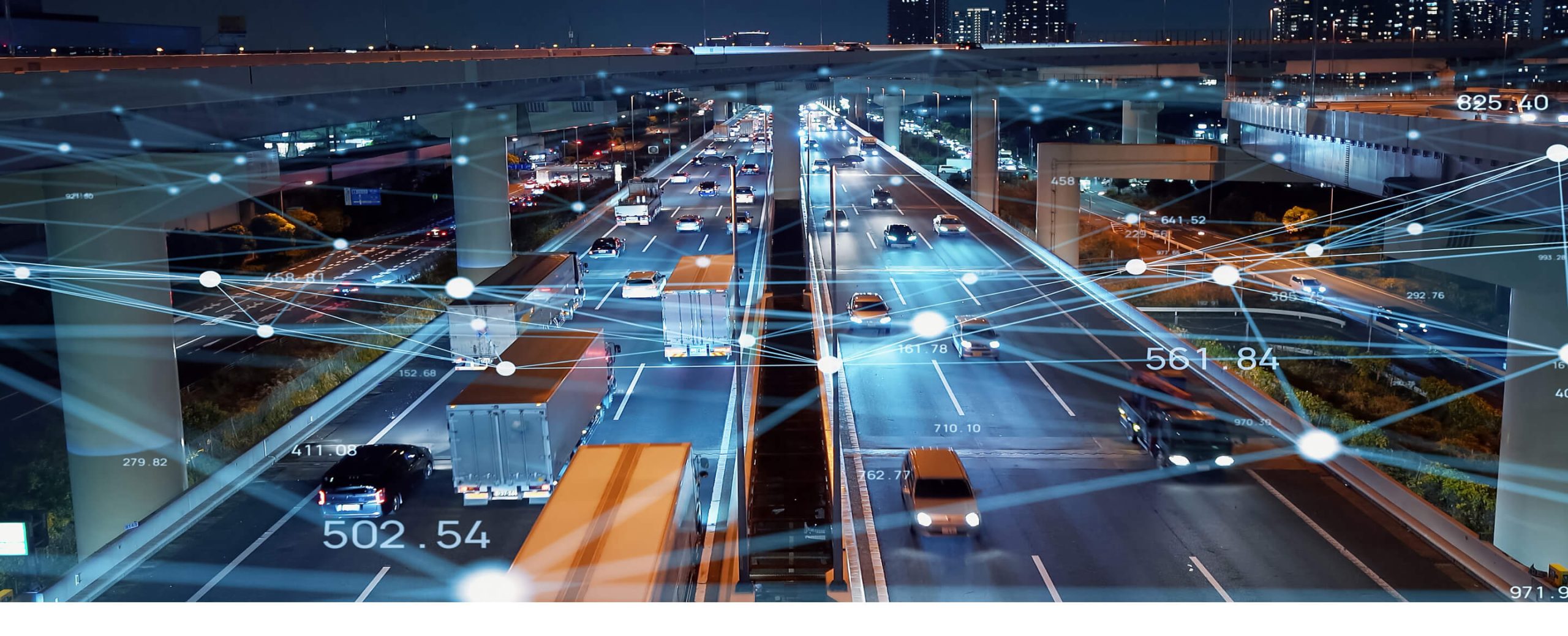How to Motivate Gen Z Employees on the Shop Floor
As Generation Z enters the workforce in increasing numbers, employers are faced with a novel challenge when it comes to motivating and engage this unique generation – a generation with different expectations to their predecessors.
Generation Z – or “Gen Z” – is a cohort that values authenticity, flexibility, and purpose in their work – and they expect their employers to do the same. Employers that cannot provide this will have a hard time retaining retail staff in the future.
With these values in mind, what motivates Gen Z in the workplace? This article attempts to answer this question – we’ll explore practical strategies that retail managers can use to motivate these employees on the shop floor in order to foster a more engaged, productive, and satisfied workforce.
Who Are Gen Z?
Gen Z is the part of the population born between 1997 and 2012. They are the newest generation to enter the workforce and are known for their tech-savviness, entrepreneurial spirit, and desire for work-life balance. They are also the most diverse generation.
Another defining characteristic of Gen Z is their desire for authenticity. They want to work for companies that are transparent, ethical, and socially responsible. They value diversity and inclusion, and they expect their employers to prioritize these values as well.
In addition, they want their work to have a purpose beyond just making a living – they want to feel like they are making a difference in the world and/or pursuing a meaningful career.
Challenges in Motivating Gen Z Employees
Motivating Gen Z employees can be challenging for several reasons.
- They are more likely to job-hop than previous generations and may not be as committed to their current job as their millennial and boomer colleagues.
- Salary is important to this generation – but what motivates Gen Z in the workplace more than that? Work-life balance. For many members of this generation, it’s a priority, which means that traditional incentives like promotions and salary increases may not be as effective. In fact, Deloitte’s ‘Welcome to Generation Z’ report states that while salary is still important for this cohort, it is less important to them than for any other generation. On the other hand, they have come to expect employers to offer perks and benefits – including flexible working arrangements.
- Their expectation for meaningful work combined with shorter attention spans may also cause them to lose interest in their work faster than those of previous generations. Gen Z grew up with smartphones and social media applications such as TikTok, which encourage the fast consumption of bitesize pieces of information as well as constant stimulation and instant gratification. As a result, they may get bored easily if their work is not engaging.
- The report by Deloitte also discusses that, despite the stereotypes that have already emerged about Gen Z, these individuals refuse to be pigeonholed and expect a degree of personalization in their working lives.
With these challenges in mind, let’s find out how to motivate Gen Z employees and reduce churn.
How to Motivate Gen Z Employees: Strategies
Training and Development Opportunities
As mentioned, Gen Z are motivated by work that has a purpose beyond just making money. Employers can therefore create meaningful opportunities, and part of that is providing training and development that help them to excel in their role and prepare them for the future.
Provide Opportunities that Align with Their Values
One approach to training and development is to provide opportunities that align with the interests and values of Gen Z. This may seem difficult when their role involves repetitive tasks, but it’s possible.
For example, if an employee is passionate about sustainability, they may be more motivated if they are given opportunities to learn about eco-friendly products and production processes the company uses. In turn, this knowledge may provide them with a better basis for discussing such issues with customers, further promoting the brand’s reputation as a sustainable business.
Other opportunities could involve participating in recycling initiatives or charitable activities associated with the company, as well as being connected with opportunities to volunteer in their community.
Showing that the company cares about issues that are important to Gen Z can help to create a sense of purpose and meaning in their work. Employees are then no longer just stacking shelves or providing point-of-sale service – they are contributing to something meaningful.
It’s also important to remind employees why their work matters. Even the most straightforward or repetitive of roles makes a difference – a supermarket employee, for example, is ensuring food gets to the table of hundreds of thousands of local residents. Reminding them about this often will increase morale.
Offer Non-Linear Career Paths
Gen Z is not content with climbing the ladder in a linear way, so it’s important to offer shop floor staff cross-departmental opportunities. Someone that starts out on the shop floor many not be interested in becoming a department or branch manager, and they might not be interested in sales either. However, they may be well-suited to operations.
Therefore, to keep shop floor staff motivated in their current roles as well as retain them for the future, they need to see that their employer honors the possibility that they may change their minds or take the road less travelled.
In addition, staff should be offered training opportunities that allow them to develop a broad range of skills that will apply to different roles.
Provide Mentoring and Coaching
Another consideration when it comes to development is to provide mentorship or coaching. Staff may appreciate having a more experienced colleague to turn to for guidance and support, and this may help them feel more valued by the company.
Offer Flexible Scheduling
Gen Z employees value flexibility in their work schedules and they have come to expect it. The retail industry comes with unsociable hours at times, with employees having to work weekends and in some cases, evenings. It is much more engaging to rotate the timetable so that it is not always the same people working at the weekend.
Even having one out of four weekends free each month could make the world of difference to an employee and prevent them from looking elsewhere for opportunities that provide them with better work-life balance.
Our solution includes an Employee Self-Service app which lets staff plan and change shifts to their liking.
Use Technology
Gen Z are comfortable with the latest technologies and are used to having it at their fingertips to make life easier. As a result, they appreciate tools like mobile apps that make it easier to do their jobs. One example is the use of a mobile app to find important information and resources related to their role.
Technology may also be used to deliver training in the form of videos, podcasts, or interactive courses that include gamification elements.
Another use of a mobile app could be to create a performance tracking and feedback system that incentivizes staff through rewards. Again, gamification may be used here to make things more fun and interactive, such as a points system where staff are rewarded for completing certain tasks or hitting certain milestones or sales targets.
You can also make their lives easier using technology such as our workforce management software – MANUS WFM. It lets staff easily track time and request vacation – all with a modern, sleek user interface.
Create a Positive Work Culture
Creating a positive work culture is an important part of getting Gen Z buy-in. This means providing opportunities for feedback and collaboration, ensuring diversity and inclusion, and creating a sense of community and belonging. Again, Gen Z employees want to feel like they are part of something bigger than themselves, and a positive work culture can help foster that sense of connection.
Wellbeing initiatives also come into play here, including support for mental health and general wellbeing, the provision of healthy meals, and so on. However, it also includes anti-bullying policies and measures that minimize toxic social dynamics and management styles (speaking of which, micromanagement will not go down well with Gen Z as it communicates mistrust and a lack of confidence in an employee’s ability to perform – which is not popular among a generation that highly values authenticity and transparency).
The Importance of Communication in Creating a Positive Work Culture
Transparency and open communication is key to ensuring an environment in which employees are content and, therefore, able to perform at their best. All employees should feel comfortable in voicing concerns, suggestions, and other feedback.
While it may not be easy to ensure that all employees have a voice in a large organization, implementing the processes and systems to support that will make all the difference in terms of culture. After all, who wouldn’t want to work in a company that makes them feel like equals/liked valued contributors?
Neurodiversity
The often-overlooked area of neurodiversity needs consideration by any large organization that wants to promote a positive workplace. As Generation Z has grown up, general awareness about Attention Deficit Hyperactive Disorder (ADHD) and Autistic spectrum Disorder (ASD) and other neurological differences has grown remarkably. Regardless, many organizations fail to train their staff about such topics.
With up to 20% of the population being neurodiverse – and with diagnoses increasing – it is important for employers to recognize not only their required accommodations, but how they bring competitive advantage to the workforce.
While the law in many regions already requires employers to provide reasonable accommodations for such employees, that does not mean that employers truly understand their needs. It is therefore beneficial to train management so that such individuals can be well-understood.
Again, it comes down to flexibility – in working arrangements as well as management styles – and open communication is the key ensuring nobody has to suffer in silence with difficult working conditions.
Give Feedback and Recognition
Gen Z value not only the opportunity to give feedback, but to receive it as well. Organizations should therefore seek to provide regular feedback, including one-to-one reviews.
Regular praise is also important – a “well done” or “thanks for doing such a great job today” makes a huge difference. Because what motivates Gen Z in the workplace more than knowing their work has meaning and value? Not much. They want to know how they are performing in their roles; they want to feel like their opinions and ideas are valued; and they want to know that their work is making a difference.
In Summary
The entrance of Gen Z to the workforce presents novel challenges. This generation is unique and has higher expectations from their employers than their predecessors – expectations about flexibility, work-life balance, and the opportunity for fulfilment – expectations of being treated like a human being whose needs are respected. In addition, their values are important to them and they seek employers who demonstrate social responsibility.
Many organizations are already taking steps in the right direction when discovering how to motivate Gen Z employees, such as implementing new learning technologies and offering more flexible working arrangements. Other steps to take include offering professional development opportunities including non-linear career paths (and the training to support them), and the creative use of technology.
Manus Software Europe/Softbrick B.V. are Europe’s favorite provider of enterprise workforce management software. If you’re looking to improve your WFM processes including payroll and attendance management, contact us to book a demo.





